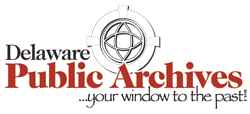
The legal principle which governs the way in which municipalities in Delaware are governed stems from a ruling made in 1868 by John Dillon, a judge from Iowa who decreed that “municipal corporations owe their origins to and derive their powers and rights wholly from the legislature.” As Delaware’s General Assembly determines how each local government will function, the Laws of Delaware provide an understanding of the legal history relating to the governance of each municipality. Local governments have been incorporated under Delaware law since 1809 and, through re-incorporation and amendments, this process continues today. In order to understand how each Delaware municipality evolved in state law, a summary of the laws which relate to the governance of each of Delaware’s 57 municipalities can be found in the linked pages. The current governing documents which define the organizations, powers, functions, and essential procedures of Delaware’s municipalities – their Charters, can be accessed online at https://www.charters.delaware.gov.
Once established, the act of incorporation, or Charter, charged each local government with keeping records of its actions primarily through the minutes of its governing body, but over time, through many other types of documents. In 1913, the State of Delaware which had established a public record law in 1905 to preserve its vital public records, expanded this law to include municipal governments. The Delaware Public Archives (DPA) trains local governments in methods essential to ensuring the preservation of vital documents and provides a permanent storage facility where local government records are on file in perpetuity. While some local records have been lost over time, those which have been archived can provide researchers with important information on the municipality’s governmental history. The records on file at the DPA are noted in the linked pages.